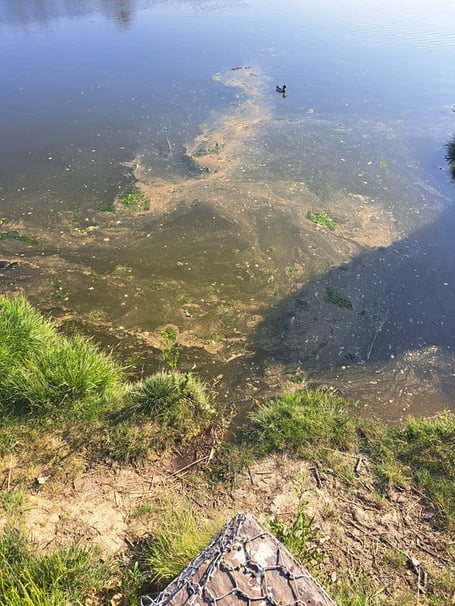A water company has been criticised after Cardigan’s wastewater treatment works was found to have spilled sewage on 304 days last year.
Wales’ primary water supplier Dwr Cymru is once again under the spotlight after being downgraded for its environmental performance by regulator Natural Resources Wales (NRW).
It has now been revealed that the extremely polluted River Teifi, the nation’s longest, saw effluent spew from the Cardigan Sewage Treatment works for at least a third of last year, when considering total minutes of overflow.
Dwr Cymru provided the spillage data for 2022 to the Save the Teifi Community Group for Cilgerran and Llechryd pumping stations as well as Cardigan wastewater treatment works.
The private water sector refers to discharge drains as combined storm overflows (CSOs) and warns that sewage flooding and damage to homes would occur without them – especially during periods of extreme weather. But opponents say companies have neglected an antiquated network of pipes which increases the need for the divisive practice.
While the record of Cilgerran and Llechyrd was relatively unsurprising, with discharges mainly in the wetter winter months, the Cardigan figures have prompted an outcry.
In Cardigan, spills occurred throughout the year - even in drier months - with intense discharging during January, February, March, April, October, November and December. Spills took place nearly every day.

An academic and representative of the Save the Teifi Community Group said he was particularly concerned with the figures associated with Cardigan treatment works.
“It appears to have been spilling sewage during the summer last year despite it being very dry,” he said.
“When you look at the data, if you just take it as the number of minutes that were spilled over the course of the year, it would have been spilling 33 per cent of the time.
“If you count each day when a spill took place, that was more than 80 per cent of the days of the year.
“The recording system notes if a spill occurs in a particular 15-minute period. It could last a minute or all 15 but Dwr Cymru record it as 15 minutes in their report to NRW.
“The spill is sewage diluted by rainwater and we don't know if it is a thousand litres or 10 - so there are caveats.
"But when it is in the middle of the summer and there is no rain, it should not be spilling and so we want to know why it is spilling and is the problem going to be fixed.”
Environmental campaigner Piers Partridge said: “Would you be surprised to hear that Cardigan Treatment Works recorded spills into the River Teifi on 304 days last year, that is 83 per cent of the days in the year.
“These are the company’s own stats. It’s beggars' belief. How can this be happening to our beautiful river.”
The spill intensity has been displayed on a 2022 calendar and has been split into four categories based on percentage of spills. A day consists of 96 periods of 15 minutes, so if the CSO was spilling for 48 periods this would be 50 per cent of the time.
For significant passages of February, March, August, September, October, November and December, it was discharged for 76 per cent of the time or higher.
A Dwr Cymru spokesperson said: “At Welsh Water, we are committed to being open with the data on the performance of our storm overflows and make this available on our website.
“Our data for Cardigan Wastewater Treatment Works does show that there have been a number of spills from the site during the summer months; this is something we have been investigating and trying to resolve for some time.
“Our investigations have found that we are seeing seawater enter the works – particularly during spring high tides. This is known as saline intrusion.
“This intrusion is in turn affecting the treatment process at the works, which can then exceed the current flow capacity of the works.
“These issues can cause the works to spill – however it should be noted that any spills from Cardigan would be very diluted from the saline intrusion.
“We are working closely with Natural Resources Wales on this matter, and they are aware of our plans to invest around £20m to alleviate this issue during our next investment period (2025 – 2030).
“This project will change the process type at Cardigan WwTW, ensuring the site can cope better with this influx of salt water, helping to reduce the spill frequency from this site.
“In addition to this, our operations team undertake process cleans on site each spring, ahead of the bathing water season to ensure the works is in the best possible position for the summer months.”


.jpeg?width=209&height=140&crop=209:145,smart&quality=75)
.png?width=209&height=140&crop=209:145,smart&quality=75)

Comments
This article has no comments yet. Be the first to leave a comment.